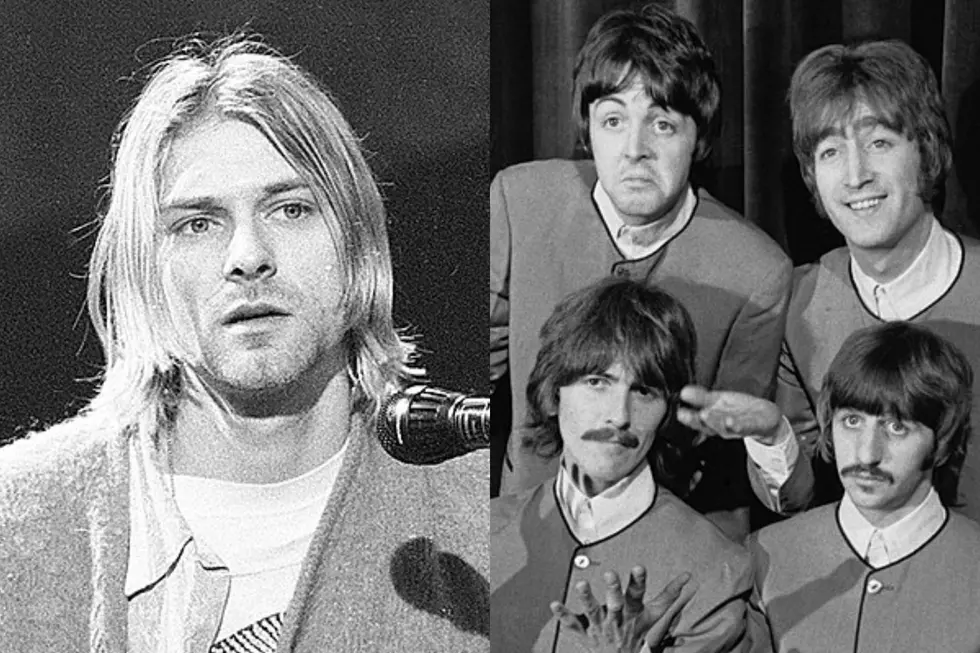Courtney Love Tries to Stop Kurt Cobain Conspiracy Movie Screenings
More than 20 years after it occurred, the death of Kurt Cobain remains, for some, unsolved. A new documentary called Soaked in Bleach, which looks into conspiracy theories surrounding the Nirvana frontman's suicide, was released last week. Today (June 17), we learn that theaters showing the film were met with a cease-and-desist notice the law firm representing Cobain's widow, Courtney Love.
The letter claims that the movie "falsely presents a widely and repeatedly debunked conspiracy theory that accuses Ms. Cobain of orchestrating the death of her husband Kurt Cobain [...] There is simply no credible evidence to support any of these defamatory claims, as has been publicly known for years. In 1994 the Seattle Police Department (“SPD") investigated the tragic event of Mr. Cobain’s death and concluded the case a suicide."
Although, it continues, the theaters screening it "did not produce the Film, distributors of defamatory material can be held liable if they “knew or had reason to know that the material was defamatory.”
Soaked in Bleach, whose trailer is embedded above, is told from the point of view of Tom Grant, a private investigator hired by Love to find Cobain a few days before his body was discovered in the room above his garage on April 8, 1994. Grant's investigation led him to believe that Love murdered her husband. The movie combines testimony from experts and witnesses, Grant's recorded conversations with Love and re-enactments using professional actors.
Deadline received a statement from the movie's producers that reads, in part, "We were disturbed to learn that Courtney Love’s lawyers sent threatening letters to movie theaters all over the country. Most arrived before Soaked in Bleach was released last week, presumably before she or her lawyers ever saw it. She obviously hoped to scare theater owners into dropping the film. Thankfully, very few were intimidated. Most saw the letter for what it is – a cowardly attack on the rights of free speech, free expression and free choice."
In 2014, following the revelation of new photos from the scene of Cobain's death, the Seattle Police Department re-opened the case and, again, ruled that it was a suicide.
See Nirvana and Other Rockers in the Top 100 Albums of the '90s
Here's a Look at Rock's Tragic 27 Club
More From Ultimate Classic Rock









